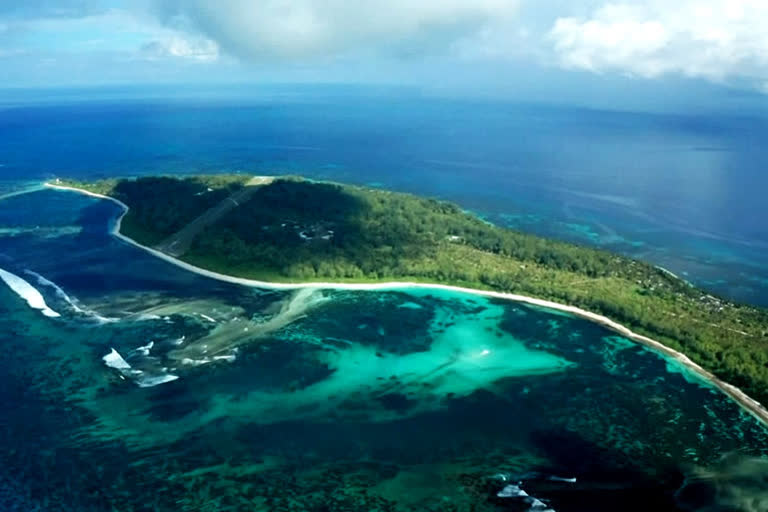Hyderabad: March 11, 2011. An earthquake of magnitude 9.0 that occurred in northeastern Japan resulted in a devastating 15-metre tsunami. The waves destroyed the 5,306 MW Fukushima Nuclear Power Plant. That was the second worst atomic accident since the 1986 Chernobyl disaster.
Consequently, the Fukushima plant's operators had released 1,320 tons of low radioactive waste into the ocean to prevent equipment from getting damaged. Later, 12 lakh tons of contaminated water was stored in 1,000 tanks at the nuclear station.
As the amount is growing daily, the Japanese government has approved a strategy to discharge the water into the ocean. The release would start from 2022 and operations to remove melted fuel from the former nuclear plant are underway. These developments have sent the world nations into a frenzy. The contaminated water contains dangerous amounts of isotopes such as cesium, tritium, cobalt and carbon 12.
Besides being fatal for the aquatic life, high levels of radioactive elements would damage the fishing industry and lead to incidence of several types of cancer. Besides, Japan would be setting an unhealthy lead of dangerous radioactive waste management for other countries.
If Japan continues with its decision, radiation doses in marine life need to be continuously tested. Groundwater in coastal areas should also be examined. Though Japan claims that the water contains only tritium, experts warn that the imminent threat, however small, cannot be ignored. Once radioactive water begins to contaminate the oceans, seafood consumption will no longer be possible.
Read: Air quality will substantially improve in coming years: CPCB
In the past, France released contaminated waters which reached the North Atlantic and Arctic seas, killing thousands of turtles and seals. Environmentalists are worried that Japan's move could threaten Southeast Asian countries the same way.
Even a small level of radioactivity increases the risk of cancer. Thyroid cancer cases are still on the rise even after 20 years of the Chernobyl disaster. Beta decay of tritium can alter the human DNA, causing adverse impact on generations to come. The intensity of danger is dependent on the density of radioactive isotopes in water. It takes 180 to 300 years for nuclear cesium to completely dissolve in water. 70 per cent of girls exposed to natural cesium are at risk of thyroid and breast cancers later in life while seven per cent of boys are at risk of leukemia.
The Japanese have staunchly opposed their government's decision to release radioactive waters into the ocean. 41.5 per cent of citizens voted against the strategy. Fishermen in the Fukushima coast have made their disapproval clear. China and South Korea are resisting this move.
Though Japan claims to have treated the contaminated water, China's nuclear experts want a committee to assess if the water meets international safety standards. Post tsunami, had Japan concentrated on restoring public health safety and environment instead of the nuclear plant, the situation would have been under control.
Oceans and seas are interlinked with each other. The radioactive Fukushima waters from the Japan coast can pose serious threat to health and economy to every Asian country. Tourism and hospitality industries will flounder if panic resulting from nuclear wastes continues to rise. International tourism revenue has already hit a rock bottom due to COVID-19 pandemic. Japan needs to look at an alternative strategy to store radioactive water instead of releasing them into the ocean.



